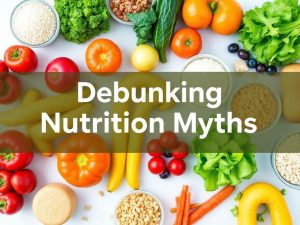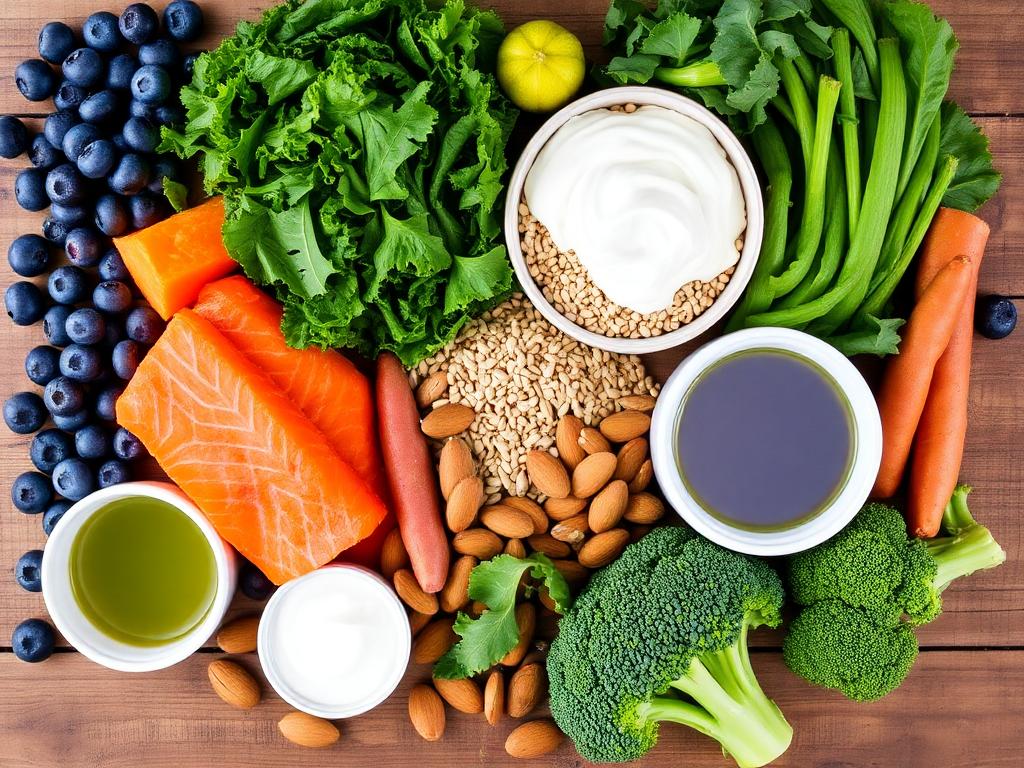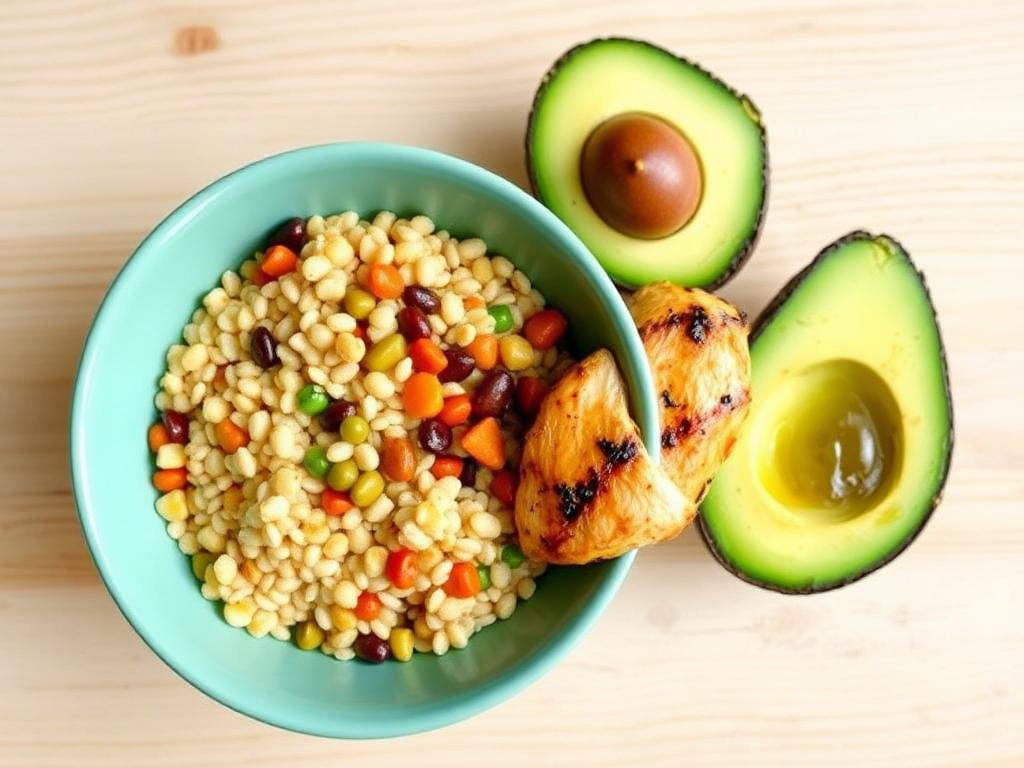Debunking Common Nutrition Myths
Separating Fact from Fiction
In today’s world, we are constantly bombarded with advice about what to eat and how to stay healthy. However, not all of this advice is based on science or fact. Nutrition myths are widespread, leading to confusion and unhealthy habits. In this article, we will take a closer look at some of the most common nutrition myths and provide the facts to help you make informed choices for a healthier life.
1. Myth: Carbs Make You Fat
Carbohydrates often get a bad rap, but they are not the enemy. In fact, carbs are an essential nutrient that our bodies need for energy. There are two types of carbs: simple and complex. Complex carbs, found in whole grains, vegetables, and fruits, provide long-lasting energy and are full of fiber, vitamins, and minerals.
The real issue arises when we consume too many refined, processed carbs (like white bread, sugary snacks, and soda). These can lead to weight gain and other health problems. But healthy carbohydrates, such as brown rice, oats, and sweet potatoes, are not only safe but beneficial for your health.
Fact: It’s not carbs themselves that cause weight gain, but the overall balance of calories and your lifestyle choices.
2. Myth: Eating After 8 PM Leads to Weight Gain
This myth has been around for years, but the time you eat doesn’t play as big a role in weight gain as you might think. What matters most is your total calorie intake throughout the day. If you eat more calories than your body needs, regardless of the time, it can lead to weight gain.
In fact, eating a healthy snack in the evening can sometimes be beneficial for maintaining blood sugar levels and preventing overeating the next day.
Fact: Weight gain occurs when you consume more calories than you burn, not just from eating at night.
3. Myth: All Fats Are Unhealthy
Fats have gotten a bad reputation due to their calorie density and association with heart disease. However, not all fats are created equal. There are healthy fats (unsaturated fats) and unhealthy fats (saturated and trans fats). Unsaturated fats, found in foods like avocados, nuts, olive oil, and fatty fish, can actually improve heart health and reduce inflammation.
The problem arises when we consume too many unhealthy fats, like those found in fried foods, packaged snacks, and processed meats.
Fact: Healthy fats are essential for the body’s functions and can even support weight loss when consumed in moderation.
4. Myth: Detox Diets Are Necessary for Cleansing Your Body
Detox diets, often marketed as a way to “cleanse” your body, are a popular trend. They promise quick weight loss and health benefits by consuming only juices, teas, or supplements. However, your body already has a built-in detox system: the liver, kidneys, and digestive system work around the clock to remove toxins from your body.
Most detox diets are low in essential nutrients and can actually harm your body in the long run. A balanced diet with plenty of fiber, water, and antioxidants is all you need for natural detoxification.
Fact: Your body does not need detox diets because it already has the necessary systems in place to remove toxins.
5. Myth: You Need to Drink Eight Glasses of Water a Day
The “eight glasses of water” rule is another widely accepted myth. While staying hydrated is important, the exact amount of water you need varies based on factors such as age, gender, physical activity, and climate. Some individuals may require more, while others may need less.
The key to proper hydration is to listen to your body—if you’re thirsty, drink. Additionally, water from other beverages and foods (like fruits and vegetables) also contribute to hydration.
Fact: The amount of water you need depends on individual factors, so focus on drinking when thirsty and maintaining overall hydration.
6. Myth: High-Protein Diets Are Bad for Your Kidneys
High-protein diets, often promoted for weight loss and muscle gain, have faced criticism for allegedly damaging kidney function. However, this is only true for people with pre-existing kidney conditions. For healthy individuals, there is no evidence to suggest that high-protein diets cause kidney damage.
Protein is an essential nutrient needed for muscle repair, immune function, and many other bodily processes. In fact, increasing protein intake can help with weight management and improve muscle mass.
Fact: High-protein diets are safe for healthy individuals and can be beneficial for weight loss and muscle building.
7. Myth: All Juices Are Healthy
While fruit juices do provide vitamins and minerals, many store-bought juices are loaded with sugar and lack the fiber found in whole fruits. Drinking fruit juice without the fiber can cause rapid spikes in blood sugar levels, leading to energy crashes and potential weight gain.
If you’re looking to boost your health, it’s best to eat whole fruits and vegetables instead of relying on fruit juices. Smoothies with added fiber and protein are also a better option than juices.
Fact: Fruit juices can be high in sugar and lack essential fiber. Eating whole fruits is a healthier option.
8. Myth: Gluten-Free Foods Are Always Healthier
Gluten-free diets are essential for individuals with celiac disease or gluten sensitivity, but they are not automatically healthier for the general population. Many gluten-free products are processed and can be high in sugar, fat, and calories to make up for the texture and taste loss.
If you’re not gluten-sensitive, there is no need to avoid gluten. Whole grains like oats, quinoa, and brown rice provide valuable nutrients and fiber.
Fact: Gluten-free does not automatically mean healthier. Focus on whole foods rather than processed gluten-free products.
9. Myth: Supplements Are a Substitute for a Healthy Diet
Supplements are often marketed as quick fixes for weight loss, muscle gain, or overall health. However, they should not replace a balanced diet. Whole foods contain a variety of nutrients, fiber, and antioxidants that supplements can’t replicate.
Supplements can be useful for filling gaps in your diet, but they cannot provide the same comprehensive benefits as whole, nutrient-dense foods.
Fact: A healthy diet with whole foods is far more effective than relying on supplements for overall health.
Conclusion
Nutrition myths can lead to confusion and poor health choices. Understanding the facts behind these common myths can help you make better decisions and adopt healthier habits. Remember, balance is key—focus on whole foods, exercise, and maintaining a healthy lifestyle to achieve your optimal health.



